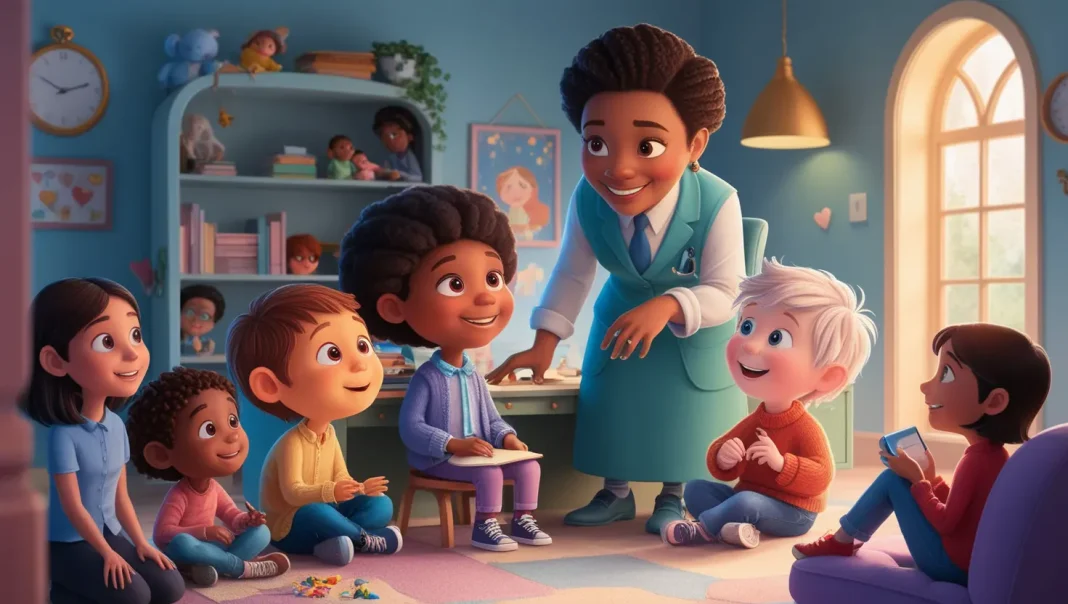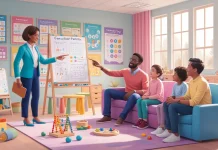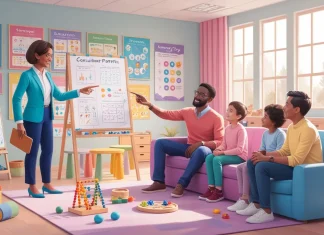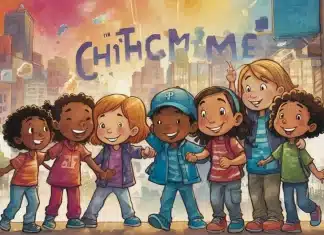Introduction
Navigating the world of special needs education and care can be overwhelming for families. That’s where guardian consulting comes in. Think of it as having a dedicated guide whose primary goal is to help families access the resources, support, and knowledge they need. In this article, we’ll dive into the role of guardian consulting for special needs kids, exploring how it makes a difference and how families can benefit from this invaluable service.
What is Guardian Consulting for Special Needs Kids?
Guardian consulting provides tailored support and advice to families of children with special needs, ensuring that they receive the educational, therapeutic, and social assistance they require. Guardian consultants are experienced professionals dedicated to helping parents understand, navigate, and manage the specific needs of their children, advocating for their well-being and development in school, home, and healthcare settings.
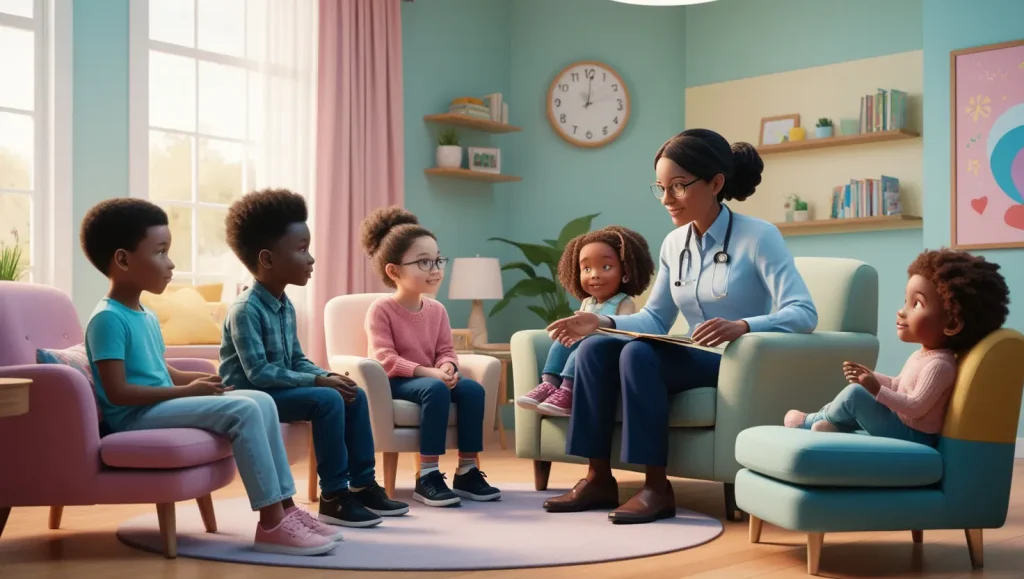
Why Guardian Consulting is Essential for Special Needs Kids
For parents of special needs children, guardian consulting becomes essential for managing the many layers of support these kids require. Not only does it reduce the burden on parents, but it also empowers families with the right tools, resources, and knowledge to support their child’s growth. It provides a clear pathway for navigating educational, social, and healthcare landscapes—tailored to the unique needs of each child.
Key Areas of Support in Guardian Consulting
Guardian consulting isn’t just about guidance; it involves hands-on support across key developmental areas. From education to social skills, consultants focus on what matters most to the family and the child. This guidance is tailored to address specific needs, ensuring that the approach is individualized and beneficial in both the short and long term.
Educational Guidance
Many special needs children require unique educational accommodations and interventions. Guardian consultants help families connect with schools, advocate for individualized education programs (IEPs), and provide guidance on the best learning methods suited to the child’s abilities. By bridging communication between parents and educators, consultants work to ensure that each child receives an education that nurtures their potential.
Behavioral and Emotional Support
Managing behavioral and emotional challenges can be especially challenging for parents. Consultants offer strategies and resources that enable parents to handle situations with greater confidence, helping children develop coping mechanisms. Through positive reinforcement and structured guidance, guardian consultants provide crucial support for emotional and behavioral growth.
Social Skills Development
Socialization is an essential aspect of child development, yet it can be particularly difficult for children with special needs. Guardian consultants often create social skills programs or recommend activities that encourage social interaction. They focus on building communication skills, empathy, and appropriate social behaviors, fostering an inclusive environment where kids can thrive.
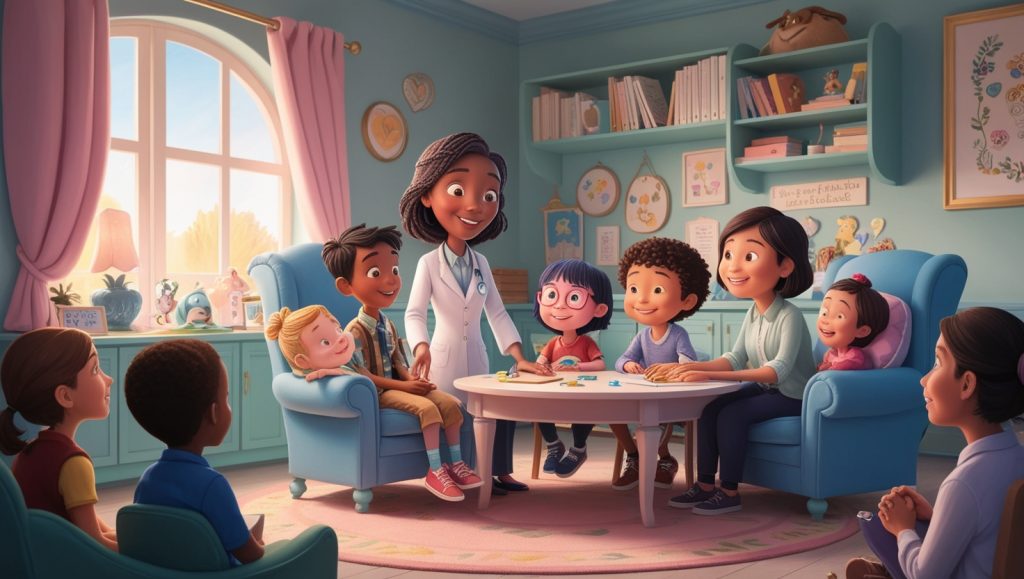
How Guardian Consulting Enhances Family Dynamics
Guardian consulting isn’t only about the child; it also brings support to the entire family. By equipping parents with practical skills and communication strategies, it allows them to better connect with their child, creating a more harmonious home environment. This family-centered approach makes guardian consulting a truly holistic service.
Communication Strategies for Parents
Clear, consistent communication is key to effectively supporting special needs children. Guardian consultants often provide parents with strategies for enhancing communication within the family. From learning how to interpret non-verbal cues to setting up structured communication routines, these skills help families build a solid foundation for understanding and connection.
Advocacy and Empowerment
Guardian consultants advocate on behalf of children and empower parents to do the same. They are well-versed in children’s rights and special education laws, providing essential knowledge to parents and ensuring their child’s needs are met across all settings. This advocacy not only empowers parents but also enhances the child’s quality of life and access to essential resources.
The Role of Guardian Consultants in Specialized Therapy
Specialized therapy can be transformative for special needs children, and guardian consultants play a key role in this process. By collaborating with therapists and medical professionals, consultants ensure that therapeutic interventions are consistent, effective, and tailored to the child’s developmental level. They work as a bridge between the family and medical experts, making sure that every aspect of the child’s therapy aligns with their needs.
Types of Therapy Supported by Consultants
Children with special need benefit from a variety of therapeutic options—such as occupational therapy, speech therapy, and physical therapy. Guardian consultants are familiar with these therapies and help families understand which types will be most beneficial for their child. They can also recommend reputable providers and coordinate with therapy schedules to streamline the process.
Coordinating with Healthcare Providers Guardian consultants often act as the linchpin in a child’s healthcare network, working closely with pediatricians, specialists, and therapists to ensure that all aspects of care are harmonized. This coordination reduces parental stress and enhances the child’s treatment outcomes by creating a more unified, effective support system.
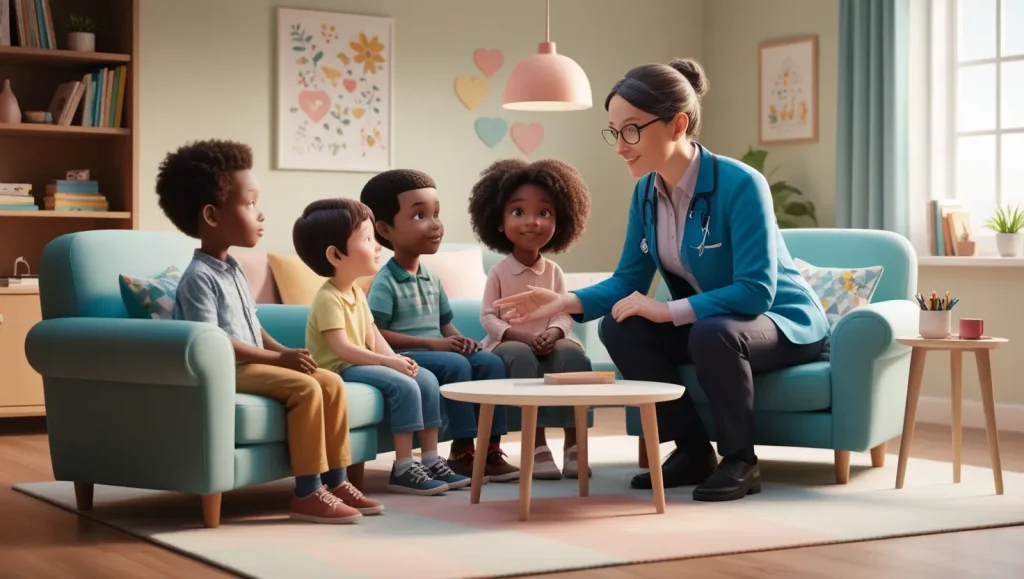
Steps to Find the Right Guardian Consultant
Finding the right guardian consultant can feel daunting, but knowing what to look for makes the process smoother. Factors such as experience, specialization, and compatibility with the family’s values and goals are crucial when selecting a consultant. Here’s what to keep in mind.
Essential Qualities to Look For
A good guardian consultant should be compassionate, patient, knowledgeable, and deeply committed to the well-being of special needs children. They should have a thorough understanding of various disabilities, therapeutic methods, and educational support systems to provide well-rounded assistance to families.
How to Assess Credentials and Experience
Credentials matter when it comes to choosing a guardian consultant. Look for qualifications in fields like psychology, special education, or social work. Experience is equally essential—consultants with a background in working directly with special needs kids will likely provide more insightful and practical guidance.
The Benefits of Guardian Consulting Services for Families
Guardian consulting services don’t just support the child but provide relief, empowerment, and resources for the entire family. These services foster a nurturing environment where children can grow and thrive. They make the path easier for parents, reducing stress, saving time, and enhancing the overall family dynamic.
Conclusion
Guardian consulting for special needs kids is a transformative service that addresses the unique requirements of these families, ensuring they receive the specialized support, guidance, and advocacy they deserve. For families navigating the complexities of special needs care, a guardian consultant is an invaluable ally, making a meaningful impact on both the child’s development and the family’s well-being.
Add Your Heading Text Here
What qualifications should a guardian consultant have? * Look for a background in special education, psychology, or social work, along with experience working with special needs children.
How does guardian consulting support families? * Guardian consulting provides educational, emotional, and practical support to families, easing the process of managing their child’s needs.
Can a guardian consultant help in school-related issues? * Yes, they often assist with IEPs and other educational needs, ensuring the child receives appropriate accommodations.
What is the main focus of guardian consulting? * The main focus is to advocate for the child’s needs while guiding families through complex educational, social, and healthcare landscapes.
How do I find the right consultant for my child? * Look for experience, relevant qualifications, and compatibility with your family’s values and goals.

